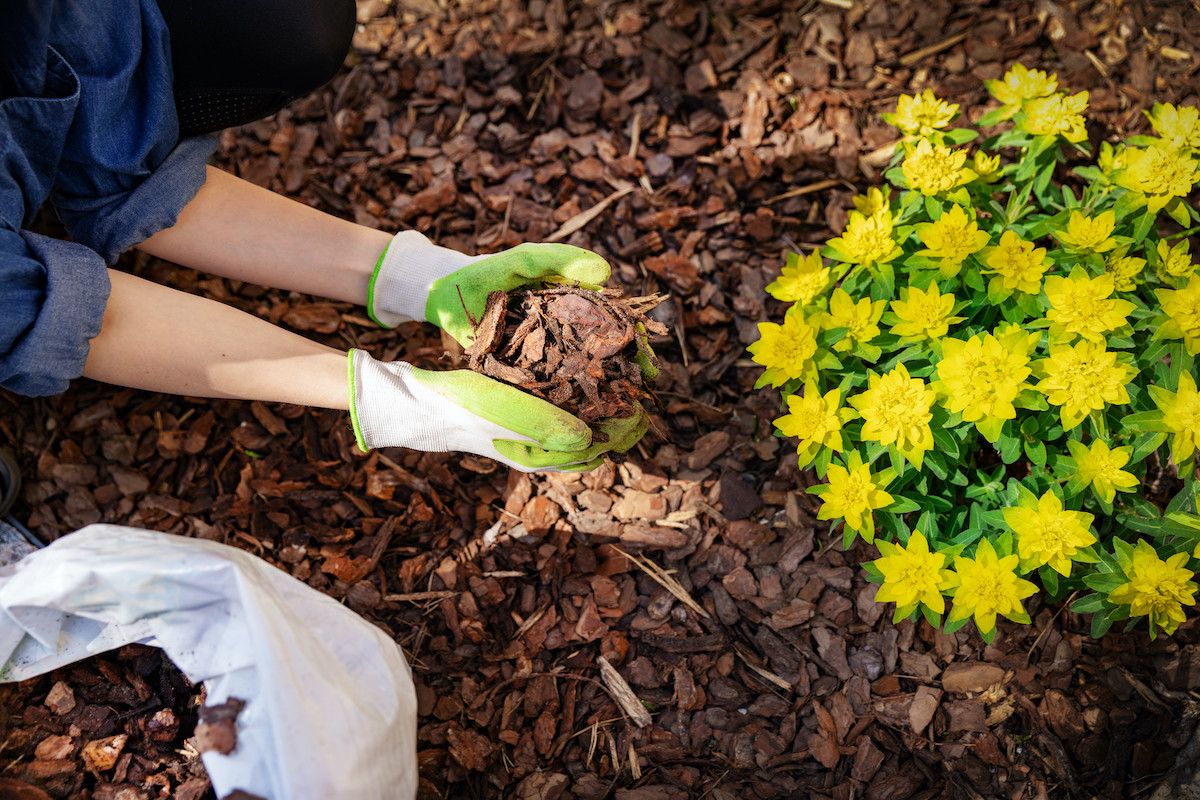Making Mulch Work for You

Mulch does a lot of heavy lifting in the garden. People often think of it as a weed barrier—and this is true, mulch does an excellent job of stopping weeds from growing. In and of itself, weed prevention is a great reason to use mulch because it will save you so much time and labor over the growing season—while preventing weeds from choking your landscape plantings.
But there are some other ways mulch works for you. Read below to find out more!
Mulch Retains Moisture
Bare soil is prone to moisture loss through evaporation, especially if that soil has been tilled. A thick layer of mulch allows rain or water from sprinklers to trickle through to the ground and holds the moisture in place. The end result is hydrated plants and evenly watered earth.
Organic Nutrition
Apart from stone, plastic or rubber mulch, most types of mulch—tree bark, grass clippings, straw, even newspaper—will break down over time. The breakdown of organic materials adds nutrients to the soil that plants can use.
What’s more, you can even target the types of nutrition to add to the soil with specific types of mulch. For example, wood chips and bark add carbon to the soil, but can deplete nitrogen over time. Regular toppings of pine needles acidify soil, which is great for things like blueberries and hydrangeas that require acidic soil to flourish.
Toning Down Temperature
Another way mulch benefits your garden beds is through temperature regulation. Think of it a little bit like insulation for your home. Mulch prevents extreme temperature swings. In hot weather, it shades soil, which helps keep roots cooler—an important aspect for cool weather crops like peas or cabbage when temperatures start to warm. And if temperatures suddenly dip overnight? Mulch reduces heat loss until the weather warms again, which helps keep roots healthier.
 Garden and Landscaping
Garden and Landscaping
 How to Choose Pet-Safe Mulch
How to Choose Pet-Safe Mulch